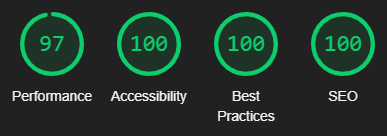Your SEO is incomplete until you focus on HEO
Rachna Gupta - Digital Marketing Specialist
25 Nov 2020
It was a hot summer day in 2002 when my manager at a Digital Marketing firm in New Delhi accidentally introduced me to the concept of search engine optimization. The brief was simple, “One of our customers wants to appear on search results, figure out how.” I was like, “Wow, that is an interesting assignment, I am expected to boost up my customer’s website on a search engine I do not control. How am I even supposed to do that?” Well, I did what most of us do, I started researching Search Engine Optimization (SEO).
I typed in “How to rank higher on Google?” and was presented with a wide variety of results that carried a bunch of contrasting opinions. Back in the day, and even today Bruce Clay was regarded as one of the first fellow humans to popularize the term as we know today “Search Engine Optimization”. I made sure, I was reading everything the thought leaders of the times, people like Bruce Clay, Danny Sullivan, Jim Rhodes, and various others were writing and sharing about the subject.
Search Engine’s History: Google Vs Yahoo: How they evolved?
Google at the time was a little under four years old and had carved out for itself a sizeable chunk of the market. In fact, Google was Yahoo’s search engine provider in the year 2000. Yahoo even tried to acquire Google for $3 billion in 2002 but Google turned down the deal because it felt it was worth at least $5 billion. Yahoo had the money but somehow managed to miss this bargain. Google is worth $1.178 Trillion today whereas Yahoo was sold to Verizon in 2017, ironically for little under $5 billion.
Google was the hottest kid on the block and with every passing day, the block was getting bigger while the kid was getting more famous, attracting all kinds of attention. Every marketer worth their salt was busy setting up a website for their organization and wanted to be on the first page of Google when people searched for a keyword or phrase that mattered. All this interest was attracting the attention of website design companies who saw a complimentary service offering in the making.
White Hat SEO vs Black Hat SEO
The race for getting your customer a top rank on Google was on and gave birth to two terms: “White Hat SEO” and “Black Hat SEO”. White Hat SEO stood for ethical practices whereas Black Hat SEO simply meant unethical and controversial practices. Many times, there was a blurring of the line between these two approaches to SEO and over the last 2 decades, Google has invested considerable time and effort in explaining what they recommend as fair and acceptable practices and what they deem as a nuisance.
Principally, SEO had two primary pillars
1) Technical SEO
Technical SEO ensures that your website is technically ready to meet the modern standards of the web. The aim is to produce a website that is technically robust and gives high performance to the users when accessed. Search Engines like the websites that are technically sound. Google has already announced the criteria of a perfect technical website through its Web Vital Standards. It will be a critical ranking standard in 2021.
2) Content SEO
Content SEO, on the other hand, ensures that the website provides the user with the right information for the right search. It is an important ranking factor as Google’s robots read the website to determine what the site is about and accordingly rank it for those search terms. The most crucial factor here is ‘Content Relevancy’ – if you aim to rank for a search term, the user should find the relevant information about it on your web page, else the high bounce rate and poor search engine experience.
a. On-Page SEO:
It includes everything you do on a page to optimize it from the URL to the content of your page.
b. Off-Page SEO:
It includes everything you do outside your website to bring the traffic back to the site. The best way to achieve this is through Social Media. Yes, Social Media is a part of SEO.
As time passed, content management systems were evolving rapidly and becoming more robust. This meant Technical SEO was getting better. There were technical checks and balances baked into the platforms and meant it was going to be more compliant out of the box.
Here is the recent result we got by using JAMStack for one of our customer’s website:

Improved Lighthouse Performance after using JAMStack
Gradually, organizations have understood the power and importance of Content as well. Everyone is producing great content (such as this blog post) and praying to rank high on search engines.
Now this is where the plot thickens, and the story gets interesting. 18 years since that summer afternoon in 2002, when I look back at all the websites, I have optimized for search engines and wonder what made some rank better than the others?
Was it a superior technical infrastructure or the content factory that was continuously producing posts on topics that were of interest to the online visitor? I can safely say, while technical stability and regular content helps, there is a bigger differentiator that decides the fate of all websites on search engines and that is the most important take away I want you to absorb from this article. Anyone can meet your standards of technical conformance and produce content more aggressively compared to you, the one thing that will distinguish you from your competitors is the experience you deliver to your customers.
The experience you deliver through your websites is a critical contributor to the perception your customers have of your organization. Leading CMS platforms such as Sitecore and Adobe to call themselves Digital Experience Platforms and shy away from being called a CMS because they have realized the value and impact your digital experience can bring to your business.
How is Digital Experience related to SEO? Simple,
Google will retain its monopoly as a search engine only if it serves the most relevant search results and prioritizes websites that address the needs of its users • How does Google decide if a website is most appropriate for a keyword? They observe how people react when a particular result is served. How long do you stay on the website they recommend? Do you come back and continue the search? Do you bookmark a particular website? Do you face any issues with the website you visit? How fast did it load? Did you visit any other pages on the website?
Today, in 2020, SEO is not limited to your metadata and keywords, it is not just about the number of external links you have or the position of the keyword in your tags.
In fact, I do not call it SEO anymore, I call it #HEO or Human Experience Optimization. Twitter @rachnagupta LinkedIn rachnagupta9. Follow us on Twitter Follow us on LinkedIn Follow us on YouTube

Rachna Gupta
Rachna Gupta is a Sitecore Strategy MVP. She has over 15 years of experience across marketing and digital experience platforms. She is a proactive and self-motivated individual with a strong customer focus. She excels in competitive bench-marking and digital asset maturity assessments. She also has hands-on expertise in search engine optimization, social media marketing, and lead generation.

Share on social media